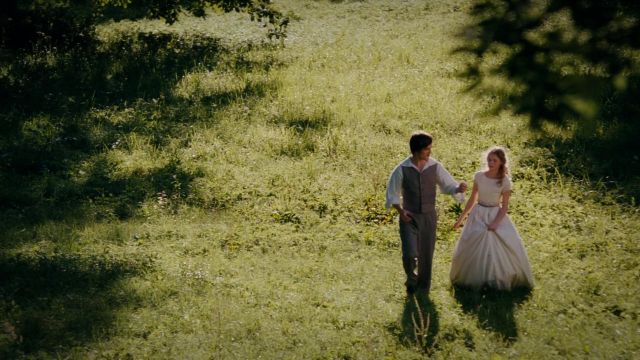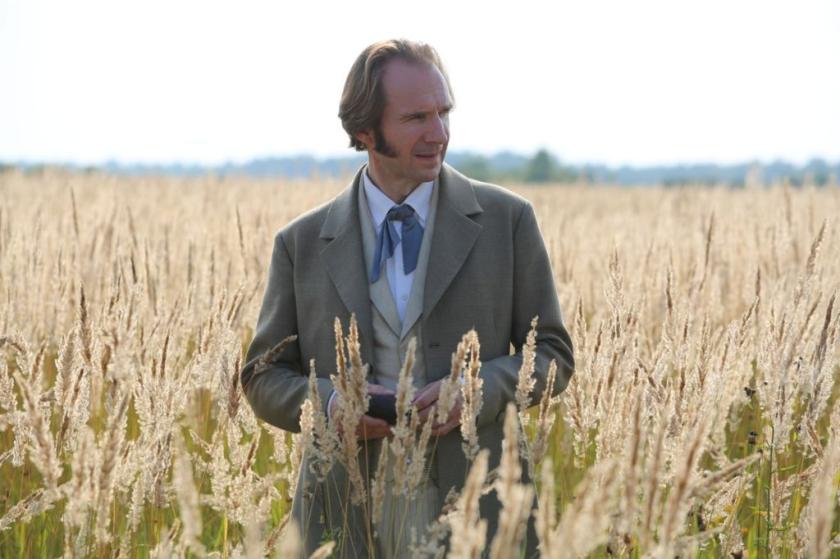Ralph Fiennes has long felt at home in the Russian repertoire, whether onstage in Fathers and Sons near the start of his career or, in 1997, taking the Almeida's Ivanov to Moscow as the first UK company to bring Chekhov home, as it were.
Add in screen credits that include starring in the Alexander Pushkin novel-turned-film Onegin, directed by his sister Martha, and it begins to makes sense that here Fiennes is speaking what sounds to this untutored ear as very decent Russian in a film adaptation from the director Vera Glagoleva of Turgenev's A Month in the Country that appears to minimise Fiennes' presence by choosing as its English-language title Two Women.
That, in turn, is the name of an Oscar-winning Sophia Loren vehicle from 1960 to which this fairly soupy affair bears no relation whatsoever. Indeed, I can't imagine that great Italian neorealist Vittorio De Sica would have much time for such gauzy emotions, complete with heavy breathing and a leading lady, Anna Astrakhantseva's Natalia Petrovna, who seems not so much to speak her lines as to exhale them. Or maybe breathless pronouncements on the order of "goodbye forever" sound a bit less swoony in Russian, in which case Fiennes' English reserve and understatement prove very welcome indeed.
 Turgenev's narrative seems rarely to be long out of circulation and lives on via the Ashton ballet and, just last year at the National, courtesy a fresh version from director-adaptor Patrick Marber that largely avoided the visual cliches – those inevitable forests of birch, for starters – so favoured by Glagoleva on this occasion. The idle Natalia has an older husband, Arkady (Alexander Baluyev), but pines for the penniless young tutor, Alexey Belyaev (a rather blank Nikita Volkov), on whom her 17-year-old ward, Vera (Anna Levanova), the second woman of the title, also dotes. (Volkov and Levanova are pictured above)
Turgenev's narrative seems rarely to be long out of circulation and lives on via the Ashton ballet and, just last year at the National, courtesy a fresh version from director-adaptor Patrick Marber that largely avoided the visual cliches – those inevitable forests of birch, for starters – so favoured by Glagoleva on this occasion. The idle Natalia has an older husband, Arkady (Alexander Baluyev), but pines for the penniless young tutor, Alexey Belyaev (a rather blank Nikita Volkov), on whom her 17-year-old ward, Vera (Anna Levanova), the second woman of the title, also dotes. (Volkov and Levanova are pictured above)
Fold in the plum supporting roles of the doctor Shpigelsky (Sergey Yushkevich) – "fortunately, not all my patients die," he notes in passing – and the governess Elizavetha (French actress Sylvie Testud, a second linguistic outsider, takes that part), and you find a cauldron of crossed affections and simmering emotions just waiting to come to the boil. Bearing contemplative witness to it all is Fiennes' indrawn yet smitten Mikhail Rakitin, who tests the the erotic temperature with a sad-eyed wisdom that comes from having waged his own amorous battles and lost. (John Simm had Fiennes' role at the National.)
Love, for its part, is viewed along the way as an elemental force or infection or gateway to madness, not to mention something, so the ending implies, from which you never fully move on. I won't soon forget the beauty of some of the images in Two Women, which benefits from a visual clarity at odds with its Mills & Boon impulses, and Fiennes and several of the supporting Russian players, in particular, are very good indeed. If it's hard to take the film as seriously as it takes itself, that may be due in part to the scene in which several of the characters fly a kite in slow motion. It's that kind of film.
Overleaf: watch the trailer for Two Women













Add comment